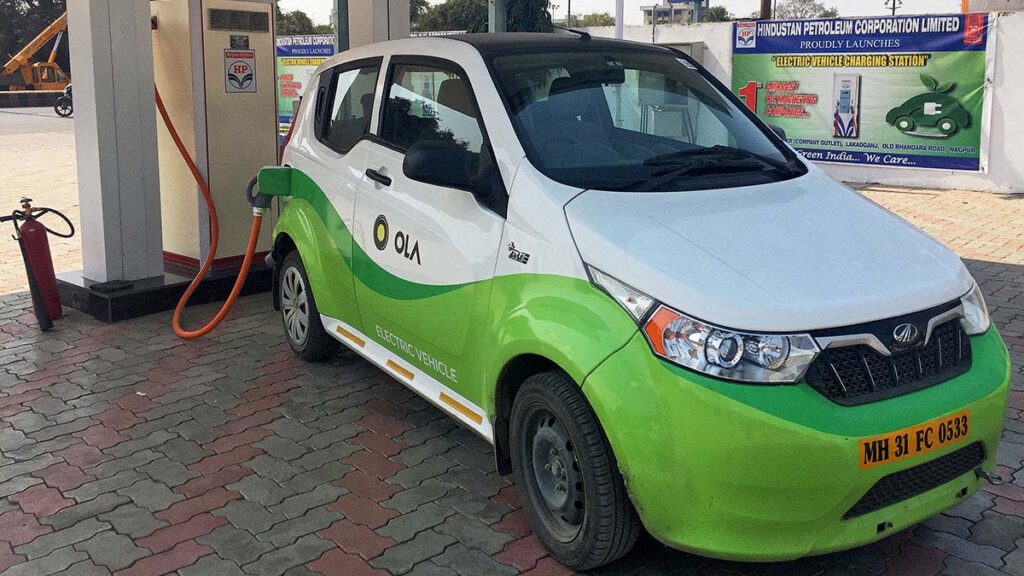 FILE PHOTO: Mahindra's, e2oPlus, operated by Indian ride-hailing company Ola, is seen at an electric vehicle charging station in Nagpur, India January 24, 2018. REUTERS/Aditi Shah
FILE PHOTO: Mahindra's, e2oPlus, operated by Indian ride-hailing company Ola, is seen at an electric vehicle charging station in Nagpur, India January 24, 2018. REUTERS/Aditi Shah India’s Reliance Industries, Softbank Group-backed Ola Electric and automaker Mahindra & Mahindra have submitted bids under the country’s $2.4 billion battery scheme, the government said on Saturday.
India last year finalised https://bit.ly/3fmg3p5 an incentive program to encourage companies to invest in the local manufacturing of batteries as it looks to establish a domestic supply chain for clean transport and build storage for renewable energy.
Hyundai Global Motors, engineering conglomerate Larsen & Toubro, and battery makers Amara Raja and Exide have also submitted bids, the Ministry of Heavy Industries said.
“The program envisages an investment which will boost domestic manufacturing … and foreign direct investment in the country,” the ministry said.
India wants to establish a total of 50 gigawatt hours (Gwh) of battery storage capacity over five years, which it expects will attract direct investment of about $6 billion.
To qualify for the incentives, companies must set up at least 5 Gwh of storage capacity and meet certain local content conditions, all of which would require a minimum investment of more than $850 million.
Ten companies have submitted bids totalling about 130 Gwh, the ministry said.
India was also encouraging global companies, such as Tesla Inc, Samsung, LG Energy, Northvolt, and Panasonic to invest.
Clean auto technology is a key part of India’s strategy for cutting pollution in major cities and reducing oil dependence. But electric vehicles (EVs) currently make up a fraction of total sales in the country mainly due to their high price as batteries are imported.
The South Asian country wants electric cars to make up 30 percent of private car sales by 2030 and for electric motorcycles and scooters to make up 40 percent of such sales, driving demand for batteries which currently contribute about 35 percent to 40 percent of the total vehicle cost.
NEW DELHI (Reuters)